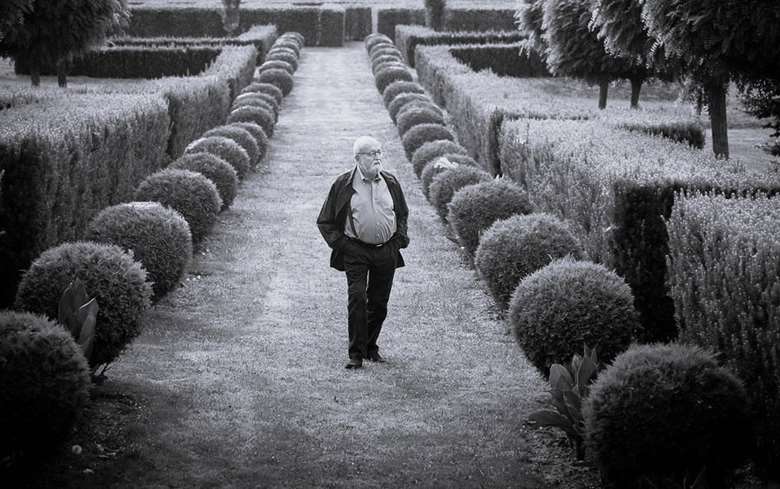Penderecki at 90: A Lasting Influence
SponsoredWednesday, December 6, 2023
The 90th anniversary of Penderecki's birth is the perfect chance to sample the diversity of work that sprang from a composer who remained intrigued by the infinite possibilities of sound

When Krzysztof Penderecki died in March 2020, Poland bade farewell to its greatest living composer and the wider world lost one of its most imaginative and influential musicians. This November, Penderecki would have been 90 years old. He may no longer be with us, but his music very much is - a good reason to celebrate the milestone even if we can no longer thank the man.
In a spirit of innovation that echoes his life’s work, Penderecki’s legacy is being marked around Europe with more than just performances of his scores. Brand new arrangements of some of the late composer’s most significant creations have already been heard this year. Sinfonietta Cracovia, meanwhile, has just completed a tour of the Iberian Peninsula in celebration of some of his most intriguing and rewarding scores, in concerts organized by the Adam Mickiewicz Institute.
He may have been adopted by the movie industry, but Penderecki was first and foremost a witness to world history
Sinfoniettta Cracovia enjoys a particularly close relationship to Penderecki’s music. The composer mentored the ensemble and recorded his own works on its podium. ‘The orchestra had the privilege of working with Penderecki and its interpretations of his pieces are often a benchmark for other ensembles,’ says Sinfonietta Cracovia’s principal conductor, Katarzyna Tomala-Jedynak.
Now the ensemble has taken its chance to posthumously repay its debt to Penderecki in his 90th birthday year. In Alicante, Bilbao, Madrid and Porto, it played an all-Penderecki programme that included the composer’s bold Sinfonietta No 3 and the enchanting Three Pieces in The Old Style. Also on the programme were new string orchestra arrangements of chamber works which owe much of their popularity to Stanley Kubrik and David Lynch films.
Earlier this month, as part of the prestigious 2023 Romaeuropa Festival and also with the help of the Adam Mickiewicz Institute, the pioneering jazz ensemble Atom String Quartet presented its Tribute to Krzysztof Penderecki in collaboration with the pianist Leszek Mozdzer. The concert, at Mattatoio in the Italian capital, included Mozdzer’s own arrangement of Penderecki’s Chaconne in memoriam Giovanni Paolo II and Atom’s own reimagining of works including the Three Miniatures for Clarinet and Piano and the Prelude for Solo Clarinet.
Few composers have proved as influential in the sphere of the European avant-garde as in the domain of Hollywood films. Penderecki’s ability to straddle both worlds was celebrated at the Fimucité International Film Music Festival on the island of Tenerife in July, where young Polish musician Jan Sanejko and electronic music guru Ben Watkins combined original string works by the composer featured in the movies The Shining, Wild at Heart and Twin Peaks with newly composed electronic sounds.
He may have been adopted by the movie industry, but Penderecki was first and foremost a witness to world history – from Yerevan to Krakow, from the heart of old Europe to the glinting vanguard of modern America. His Polish and Armenian roots were as strong as his worldview was broad. They are felt in music concerned with the local as well as the international, the historical as well as the never-ending.
Even after his death, Penderecki’s creative influence has proved remarkably resilient. New generations of composers from around the world cite him as an inspiration, while his extraordinary body of work still prompts discussion and debate while remaining a gateway into modern music from those who would otherwise never have paused to listen to it.
It is hard to think of another composer who managed to reconcile an emphasis on sound with a respect for form like Penderecki did – whose sense of expressionism found such varied stylistic homes. The 90th anniversary of his birth is the perfect chance to sample the diversity of work that sprang from a composer who remained, first and foremost, intrigued by the infinite possibilities of sound.
To find out more about the Adam Mickiewicz Institute, please visit: https://iam.pl/en







